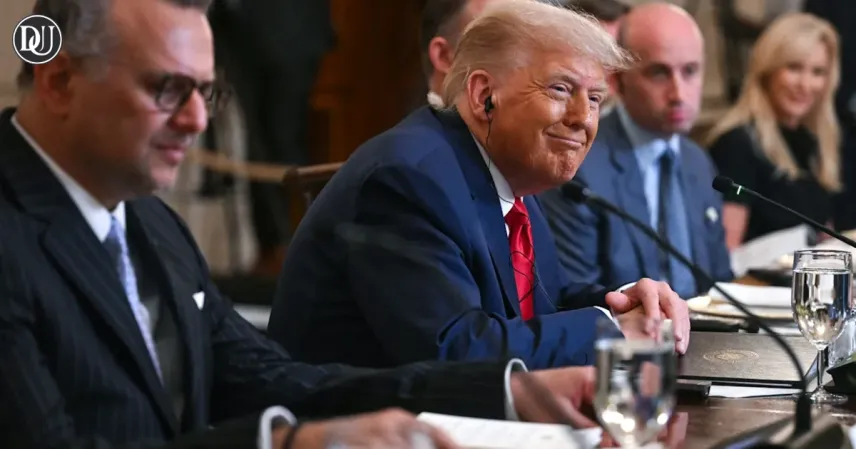Former U.S. President Donald Trump has found himself at the center of yet another media storm, this time for remarks made about liberia and its leader, President Joseph Boakai. At a recent campaign-style event, Trump praised Boakai for "speaking such good English," a comment that quickly went viral and drew criticism from across the political and social spectrum.
The statement, which Trump appeared to consider a compliment, was widely seen as ignorant and reductive, especially given liberia’s history and deep-rooted ties to the United States.
What Exactly Did Trump Say?
During a public appearance, Trump referred to Liberian President Boakai and said: “He speaks such good English. So impressive.” Though brief and seemingly harmless to some, the remark sparked a wave of reactions questioning Trump's awareness of liberia's origins and its long-standing use of English as an official language.
Critics quickly pointed out that liberia, founded in the 19th century by freed American slaves, has English as its official language and that such a comment is equivalent to praising an American president for speaking English well.
Social Media Reacts Swiftly
Within hours of Trump’s statement, social media platforms were flooded with reactions. Users criticized the remark for being patronizing and racially insensitive. Hashtags such as #Liberia and #TrumpIgnorance trended globally, with users from liberia and beyond sharing their frustration.
One viral post read, “Liberians have spoken English since before your grandfather was born, sir.” Another wrote, “No sugar-coating Trump’s ignorance this time.”
At the same time, some of Trump’s supporters defended the comment as a harmless observation, accusing critics of blowing things out of proportion.
Understanding Liberia’s Unique History
To grasp the full weight of this controversy, it’s important to understand the history of liberia. The country was established in the early 1800s by freed African Americans who returned to West Africa with support from the American Colonization Society. As such, English has been the dominant language from the very beginning, used in government, education, and legal systems.
In fact, Liberia’s capital city, Monrovia, is named after U.S. President James Monroe. The nation’s flag, constitution, and legal framework were modeled closely after the United States. Its deep-rooted connection with the U.S. makes the language spoken by its leaders unsurprising, not exceptional.
The Role of Stereotyping in Global Politics
Trump’s statement also revived discussions about the stereotyping of African countries by Western leaders. Critics say the comment perpetuates outdated notions that African nations are linguistically or culturally alien to the West.
Analysts argue that such remarks reflect a broader problem in international relations, where African countries are often viewed through a lens of paternalism. “The idea that a foreign leader from Africa must be praised for speaking English well shows a lack of basic historical knowledge,” one political analyst commented.
What Did the Liberian Government Say?
As of now, the Liberian government has not issued an official statement in response to Trump’s comments. However, several Liberian public figures and commentators have weighed in.
One Liberian journalist tweeted, “Boakai doesn’t need validation for speaking English. He represents a nation that has used English since its founding.”
Another said, “We don’t need compliments rooted in ignorance. What we need is respect.”
Trump’s History With Controversial Remarks
This is not the first time Trump has faced backlash over statements about African countries. During his presidency, he was heavily criticized for reportedly referring to African nations in derogatory terms. Critics say this latest remark fits into a pattern of behavior that shows a lack of cultural sensitivity.
For many observers, Trump’s comment about liberia is not just a gaffe, but a reflection of how little he understands or values international history, especially of countries with deep ties to the United States.
Broader Implications for US-Africa Relations
While Trump is no longer in office, his statements still carry weight. Remarks like these can influence public opinion and affect diplomatic relations. Some African diplomats have warned that repeated blunders from American political figures can erode trust and fuel resentment.
There are also concerns that such incidents may weaken efforts to strengthen partnerships between the U.S. and African nations, especially in areas like trade, education, and security.
The Power of Words in Diplomacy
Language matters in diplomacy. Seemingly small remarks can have outsized consequences, especially in a world where every word can go viral within seconds. The liberia controversy serves as a reminder to global leaders of the importance of understanding history and context before speaking.










